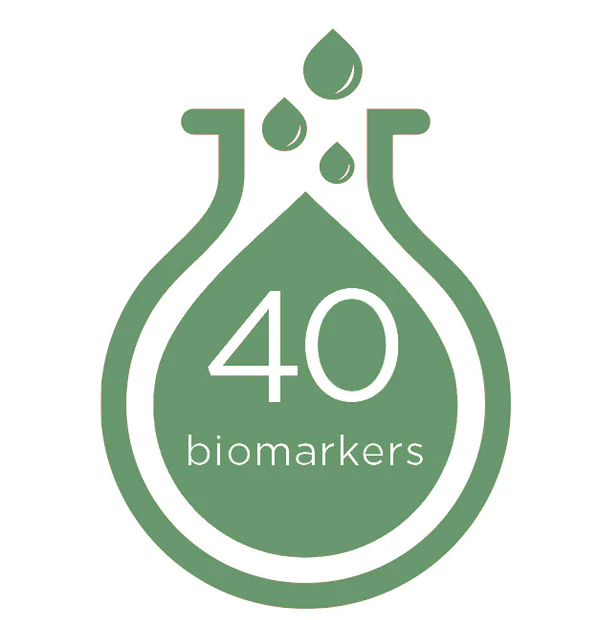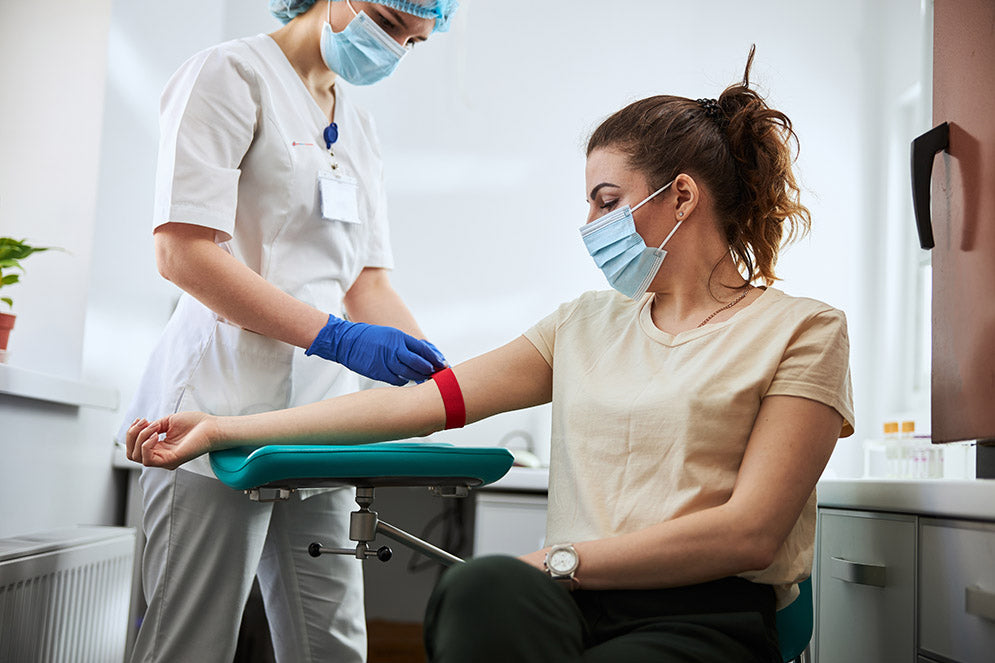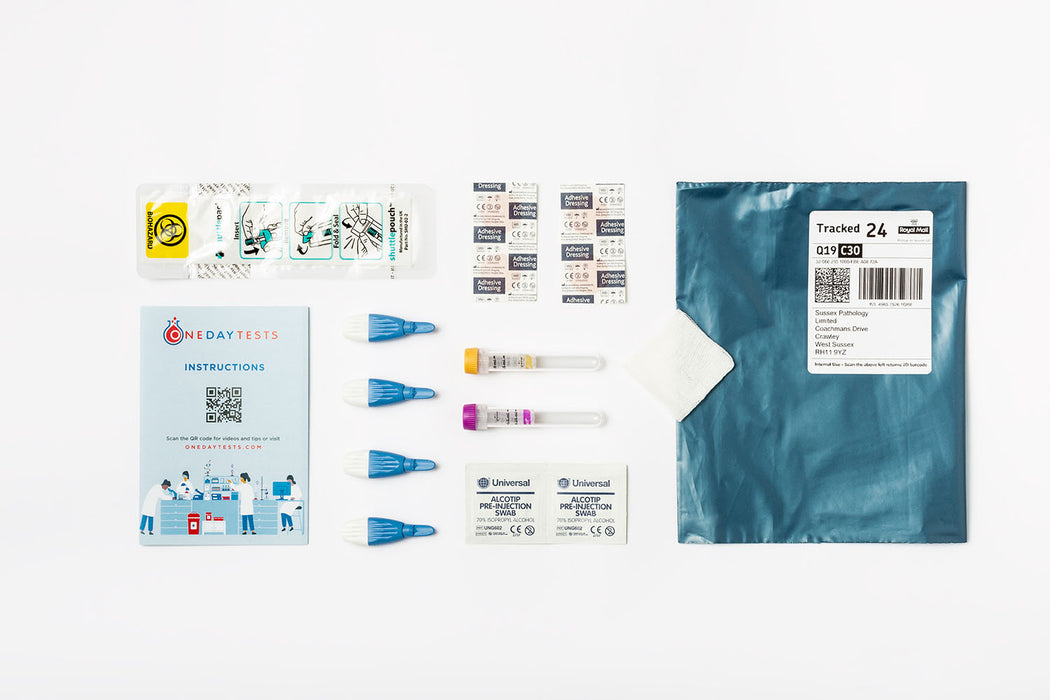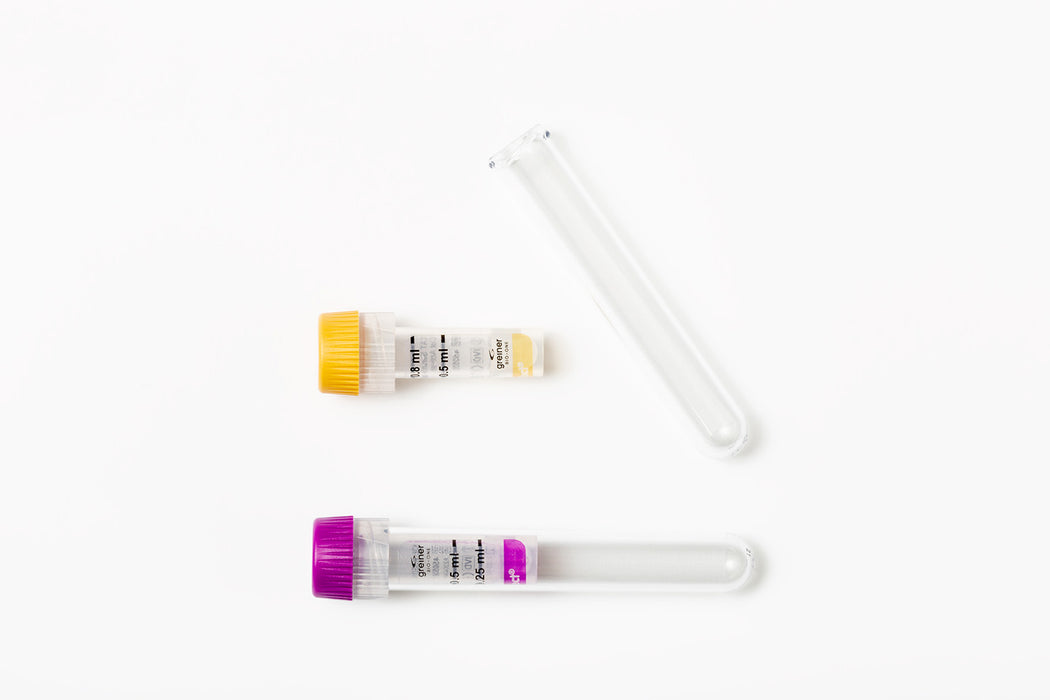About the test
Suffering from stomach pain and discomfort? Liver playing up? Dark coloured urine? Tired all the time? Fatigue or loss of appetite? The Essential All Systems check is for you.
This panel has been developed by our Clinical Governance Team member, Dr. Adam Staten and covers the following:
Full Blood Count
The full blood count tells us a great deal of information. It will help us to exclude anaemia, will give an indication of your iron, vitamin B12 and folate levels, and will also tell us a lot about the health of your immune system.
Abnormalities in the full blood count can tell us about abdominal diseases such as coeliac disease or pernicious anaemia that prevent you absorbing nutrients, and will also indicate if you may be losing blood into your gut from conditions such as gastritis, gastric ulcers, or sinister conditions such as bowel cancer.
Kidney function
Your kidneys perform many functions including removing waste products from the blood, regulating levels of electrolytes in the blood, and regulating blood pressure. Kidney function tests are amongst the most commonly performed tests by doctors because, not only do they indicate your state of health, but the health of your kidneys will guide decisions on which medications may or may not be right for you.
Kidney disease can cause abdominal symptoms such as loss of appetite of nausea.
Liver function
The liver is a highly active and complex organ. It is involved in digestion, processing waste products, processing medication, the immune response and is also part of the hormonal system. The liver can be damaged by an unhealthy lifestyle, alcohol, toxins and a variety of different illnesses.
We assess the health of the liver by measuring a range of different enzymes that it produces. The level of these enzymes indicates the health of the liver, and can be interpreted to give a clue as to what might be the underlying problem. Liver function tests can also help us work out if there is a problem with your gallbladder.
Liver and gallbladder problems can cause abdominal pain (particularly on the right hand side), abdominal swelling, nausea and vomiting, itching, dark urine and pale stools.
C-Reactive protein
CRP is a marker of inflammation that will rise from any cause of inflammation in the body. When assessing abdominal symptoms, we use CRP to exclude infection and also to exclude a group of diseases known as Inflammatory Bowel Disease which can cause abdominal pain, blood in your motions, and diarrhoea.
These conditions are ‘autoimmune’ diseases that occur when the immune system mistakenly attacks part of the body.
Electrolytes study
Electrolytes are the salts and minerals that are dissolved in your blood stream. They are vital for conducting nerve impulses, causing muscle contractions, and for regulating the acid-base balance of your blood.
It is hard to overstate the importance of electrolytes but oddly, because they are such a fundamental building block of our biology, they are easily forgotten. Sodium, potassium, and calcium are all vitally important for allowing nerve impulses to be conducted, muscles to contract, and the heart rhythm to be maintained.
Immunoglobulins study
Immunoglobulins are antibodies which are proteins in your blood that help to fight against infection. There are a number of different categories of immunoglobulins and we test for three particular categories – IgA, IgG, and IgM. Each type of immunoglobulin performs a slightly different role.
IgA antibodies are found in blood, saliva, respiratory secretions, and the fluid in your stomach. They are important in defending the respiratory and gastrointestinal tracts against infection. IgG antibodies are the most common immunoglobulin in blood and help fight against viral and bacterial infections. They also form part of the immune system’s ‘memory’ and are very important in the body’s response to infections that it has encountered before. IgM antibodies are produced as part of the body’s initial response to infection, so levels of IgM rise at the start of an infection.
40 Biomarkers
-
FULL BLOOD COUNT
- White Blood Cell Count (WBC)
- Red Blood Cell Count (RBC)
- Haemoglobin (HGB)
- Hematocrit (HCT)
- Mean Corpuscular Volume (MCV)
- Mean Corpuscular Haemoglobin (MCH)
- Mean Corpuscular Haemoglobin Concentration (MCHC)
- Red Cell Distribution Width (RDW)
- Platelets* (PLT)
- Mean Platelet Volume* (MPV)
- Lymphocytes* (LYM)
- Monocytes* (MON)
- Neutrophils* (NEU)
- Eosinophils* (EOS)
- Basophils* (BAS) -
EXCLUSIONS *
Markers with *symbol are not reported in Capillary/Home kit samples.
Platelets (PLT) - may not be reported in capillary samples if clots are present.
Potassium is not reported in capillary samples. We always recommend a venous clinic sample for this test.
-
KIDNEY FUNCTION
- Sodium
- Total protein
- Creatinine
- eGFR (CKD-EPI 2009 formula)
- Urea -
LIVER FUNCTION
- Globulin calculation
- Albumin
- Total protein
- Bilirubin
- Alanine AminoTransferase (ALT)
- Gamma-GlutamylTransferase (GGT)
- Alkaline Phosphatase (ALP)
- Aspartate AminoTransferase (AST) -
ELECTROLYTES
- Sodium
- Calcium
- Corrected calcium
- Potassium (Venous only, not available in finger prick kits.)
- Chloride -
INFLAMMATION
- C-Reactive Protein
-
IMMUNOGLOBULINS
- IgG
- IgM
- IgA -
UPGRADE
Need more biomarkers? Check out our Ultimate Performance Blood Test with around 60 biomarkers!


























